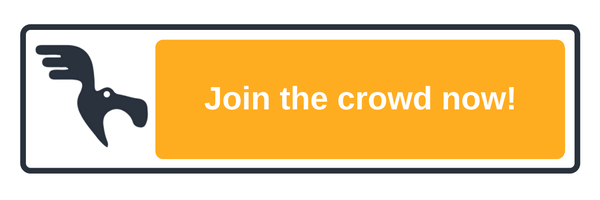Wondering what the future of fintech could look like? Look no further. According to the experts, the sector could experience these 5 trends and challenges.
What is Fintech?
Fintech bloomed out of a system that no longer worked for everyone. The term became “synonymous with a movement for change, a mindset geared towards disruption.” (1)
Fintech challenges traditional financial models. (1) Fintech created a space that responded to society’s financial needs. (1) Indeed, it was “a direct result of the anxiety left in the wake of the 2008 financial crisis.” Soon, “emergent fintech became a counterpoint to the establishment.” (1)
Example
Property Moose is a fintech company that is driven by social change. Our mission is to lower the barriers to homeownership.
Traditionally, property investment was exclusively reserved for those who had enough capital to get started.
We wanted to change that. At Property Moose, we strive to create property investment opportunities that are inclusive. That’s why you only need £10 to become a landlord when you invest through Property Moose. You don’t need a mortgage, either.
Potential Fintech Trends for 2017
Of course, these trends are not guaranteed, and they do not apply to all fintech businesses. In addition, past trends do not indicate any future performance.
However, our research has shown that the sector could potentially experience some of the following changes.
Growth
2016 proved that Fintech wasn’t just a hype. The sector has genuine potential. Banks not only agree with this, but also feel threatened by the presence of fintech. This is because banks “know their customers are not only familiar with these alternatives, but find these new alternatives attractive.” (2)
Indeed, “Consumers like and prefer the access, flexibility, and availability” that the fintech sector offers. (2)
Customer-Centric
According to experts, the customer will need to be at the centre of fintech growth in 2017. The sector should continue to provide solutions through technology for everyone - not just a highly logical stereotype. “Real people” (1) need to be at the heart of fintech.
The relationship between the service provider and the customer will be crucial. Research shows that “when it comes to favourite brands, many anticipate a particular kind of relationship but are mostly content as long as the product works. However, customer scrutiny is different now to five years ago. Social media and 24-hour news cycles have seen to that.” (1)
Changing Landscapes
“The Trump and Brexit mandates seem to represent a voting public upset with the current state of trade and globalization. However, while certain countries may shift policy focus internally, global technology trends are counterbalancing this movement offering instantaneous transactions and communications from remote parts of the globe.” (3)
Opportunities
Recently, the London School of Economics Investment Society hosted a “Fintech innovation challenge hackathon.” Experts said that one of the most innovative pitches involved a shift in perspective and “perceived opportunity from western markets to grey markets.” (3)
“Grey markets, which traditionally lack strong regulation and credit scoring, also lack access to capital. Grey market peer-to-peer (P2P) lending systems could offer higher rates of return, higher growth rates, and lower regulatory constraints. In another example, one group of students viewed India’s recent demonetization and currency changes as an opportunity to offer digital savings, payments/receivables, and even tax collection applications.” (3)
Working Together
“Banks and Fintech firms must not lose sight of global marketplace threats and opportunities. While capital constraints and compliance oversight may be reduced, competition from non-bank entities and Fintech firms will continue to shrink available market share across every border with open Internet.” (3)
“The real challenge before large banks is whether they should continue to work in isolation, consolidating their strengths internally or whether they can realize near and long-term value in partnering with FinTech start-ups. The opportunities are huge, and a partnership of this nature could create a new global payment system.” (4)
The Winners
“Firms that focus on API collaboration, seamless bank integration, and customer needs will win the year.” (3)
Written by Jenna Kamal
Sources
- https://www.starlingbank.com/wp-content/uploads/2016/09/starling_fin_tech_report_final.pdf
- http://bankinnovation.net/2016/08/the-fintech-threat-is-real/
- https://www.mx.com/moneysummit/4-fintech-trends-to-watch-in-2017
- https://www.finextra.com/blogposting/13100/how-banks-and-fintech-start-ups-can-work-together
Disclaimer and Legal
Property Moose does not provide any advice in relation to investments and you must rely on your own due diligence before investing. Please remember that property prices can go down as well as up and that all figures, rates and yields are projections only and should not be relied on. If in doubt, please seek the advice of a financial adviser. Your capital is at risk if you invest. This post has been approved as a financial promotion by Resolution Compliance Limited.
Property Moose is a trading name of Crowd Fin Limited which is an Appointed Representative of Resolution Compliance Limited which is authorised and regulated by the Financial Conduct Authority (no: 574048).





